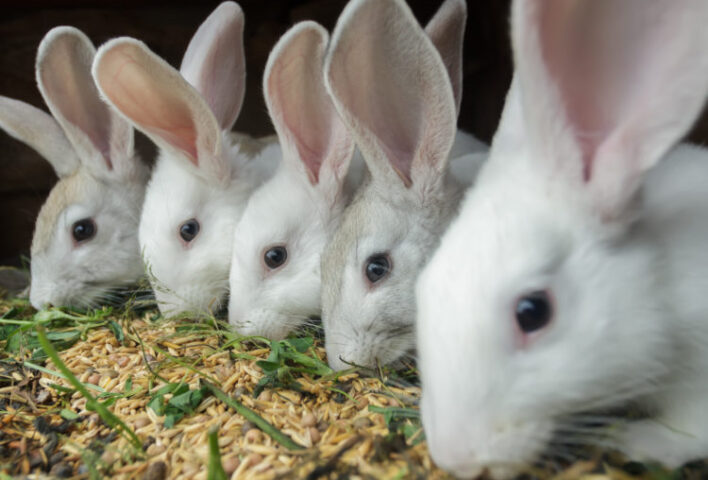Farmed Rabbits
The UK produces two-to-three thousand tonnes of rabbit meat per year and imports 5,000 tonnes mostly from China, Hungary and Poland.

Production and welfare
- Commercial rabbit farms vary in size with large farms holding up to 12,000 breeding does.
- Females can produce four to six litters each year which consist of four to seven young (kits).
- Natural weaning of kits is between six to eight weeks, but young are removed from their mothers at four weeks old in commercial units.
- Most farmed rabbits are kept in mesh cages with automatic food and water feeders, and the cages stacked in two or three tiers to make more use of building space.
- Farmed rabbits are identified by a tattoo in the ear. Toenail clipping and teeth trimming are necessary when rabbits are kept in cages.
- Due to the low value of their skins, rabbits are primarily farmed for their meat .
Disease
Rabbits can suffer from a large range of welfare problems and diseases, including fatal viruses such as myxomatosis. They can also get sore hocks from sitting on wire mesh cage floors.
Transport and slaughter
Rabbits are transported in batches of ten and should not be confined for more than eight hours as there is no access to food and water.
Rabbits usually live for nine years but are slaughtered for their meat from three to four months of age. Breeding rabbits are slaughtered at three years. Rabbits are killed by neck dislocation, a blow to the back of their head followed by decapitation or by electrical stunning before having their throat cut.
